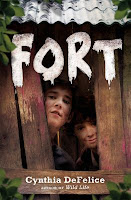This Month's Selection: The Traitor's Wife by Allison Pataki
A riveting historical novel about Peggy Shippen Arnold, the cunning wife of Benedict Arnold and mastermind behind America's most infamous act of treason . . .
Everyone knows Benedict Arnold--the Revolutionary War general who betrayed America and fled to the British--as history's most notorious turncoat. Many know Arnold's co-conspirator, Major John Andre, who was apprehended with Arnold's documents in his boots and hanged at the orders of General George Washington. But few know of the integral third character in the plot: a charming young woman who not only contributed to the betrayal but orchestrated it.
Socialite Peggy Shippen is half Benedict Arnold's age when she seduces the war hero during his stint as military commander of Philadelphia. Blinded by his young bride's beauty and wit, Arnold does not realize that she harbors a secret: loyalty to the British. Nor does he know that she hides a past romance with the handsome British spy John Andre. Peggy watches as her husband, crippled from battle wounds and in debt from years of service to the colonies, grows ever more disillusioned with his hero, Washington, and the American cause. Together with her former love and her disaffected husband, Peggy hatches the plot to deliver West Point to the British and, in exchange, win fame and fortune for herself and Arnold.
Told from the perspective of Peggy's maid, whose faith in the new nation inspires her to intervene in her mistress's affairs even when it could cost her everything, The Traitor's Wife brings these infamous figures to life, illuminating the sordid details and the love triangle that nearly destroyed the American fight for freedom."
Everyone knows Benedict Arnold--the Revolutionary War general who betrayed America and fled to the British--as history's most notorious turncoat. Many know Arnold's co-conspirator, Major John Andre, who was apprehended with Arnold's documents in his boots and hanged at the orders of General George Washington. But few know of the integral third character in the plot: a charming young woman who not only contributed to the betrayal but orchestrated it.
Socialite Peggy Shippen is half Benedict Arnold's age when she seduces the war hero during his stint as military commander of Philadelphia. Blinded by his young bride's beauty and wit, Arnold does not realize that she harbors a secret: loyalty to the British. Nor does he know that she hides a past romance with the handsome British spy John Andre. Peggy watches as her husband, crippled from battle wounds and in debt from years of service to the colonies, grows ever more disillusioned with his hero, Washington, and the American cause. Together with her former love and her disaffected husband, Peggy hatches the plot to deliver West Point to the British and, in exchange, win fame and fortune for herself and Arnold.
Told from the perspective of Peggy's maid, whose faith in the new nation inspires her to intervene in her mistress's affairs even when it could cost her everything, The Traitor's Wife brings these infamous figures to life, illuminating the sordid details and the love triangle that nearly destroyed the American fight for freedom."
What to Serve your Guests:
Hard Apple Cider: The most popular alcoholic drink in colonial times due to the abundance of apple trees. (21+ only)
Gazpacho: A colonial dish, this cold soup will be a nice light dish to serve your book club guests. Find a recipe here.
Pennsylvania Dutch Apple Dumplings: These delicious apple dumplings will be a great treat to serve your guests. Dumplings and puddings were very popular in colonial times. Find a recipe here.
Author Interviews:
Book Reviews for The Traitor's Wife:
Discussion Questions:
- 1. Before moving to Philadelphia, Clara spent her entire life on a farm in the Pennsylvania countryside. How does Clara’s identity evolve throughout her years of service to Peggy and Benedict Arnold? What character traits does Clara retain? Discuss which characters have the greatest impact on Clara’s growth and development.
2. Why does Clara take a nearly instant dislike to Major John Andre? Why is she relieved when the Judge and Mrs. Shippen refuse to allow Peggy to attend the Meshianza? Compare the way Andre treats Peggy with how Caleb treats Clara.
3. Clara is flattered at “having so quickly become her lady’s confidante and friend” (page 119). Does Peggy sincerely consider Clara a friend, or is Clara misreading her mistress? Why does Clara so desperately crave Peggy’s approval, and even friendship? At what point does this begin to shift?
4. Discuss the theme of loyalty in the novel. What drives the different characters’ allegiances? Who is the most loyal character?
5. “I hate the man, and I always will,” says Peggy of Benedict Arnold (page 146). Why then does she begin pursuing him the first time they meet? Does she truly come to care about him, or is it all an act?
6. What is your view of Benedict Arnold? Trace his evolution from ardent patriot to turncoat. Do you think he would have committed treason without Peggy’s influence? Why or why not? Discuss both his and Peggy’s motivations for aiding the British.
7. “My husband knows how to win on the battlefield. It’s all brute strength and fighting. But spy work is different—it requires poise, and self-control, and grace. It’s like a delicate dance. And if anyone knows how to dance, it’s me,” says Peggy (page 326). Which traits make Peggy better suited for espionage than Arnold? Why does the couple freely discuss their plans in front of Clara? Is it because they trust her not to reveal their secrets or, as Clara believes, because they find her invisible?
8. When Arnold’s treachery is revealed, he immediately flees and leaves Peggy behind. Given the circumstances, are his actions justifiable in any way? Why doesn’t Peggy hold it against him? Share whether or not you were surprised that Peggy was able to so easily convince George Washington and his companions of her innocence.
9. Does Clara intentionally or unintentionally help the Arnolds commit treason by cracking Andre’s code and translating the clandestine correspondence? Does her role make Clara partly to blame? What would you have done if you were in her position?
10. At one point in the story, Clara laments that she is not the master of her own fate. How do she and Caleb take charge of their future, both individually and as a couple? Discuss Clara’s warring emotions of impotency and desperation to intervene in the Arnolds’ plot.
11. When Clara confides in Mrs. Quigley about the Arnolds’ plotting, why is the older woman so quick to dismiss her claims? When Mrs. Quigley later understands exactly what’s happening, why does she still advise against Clara and Caleb taking action to stop the Arnolds? Explore how Mrs. Quigley’s response to the news differs from Caleb’s response to the news. Does either of them understand Clara’s position and perspective?
12. Examine the character of George Washington. Why does the novel open on the morning of his visit? What does George Washington mean to Benedict Arnold? To Peggy Arnold? To the servants like Hannah, Caleb, Clara, or the Quigleys? Discuss whether George Washington’s disapproval was the impetus for Arnold to agree to treason.
13. How does Clara use tactics she learned from observing her mistress to achieve her freedom from Peggy? What gives Clara the strength and courage to stand up to the imposing Peggy? Would Clara actually have reported Peggy’s guilt, or was it a bluff?
14. When news comes that Arnold successfully escaped, why is Clara relieved he won’t hang for his crimes? Why does she promise to keep quiet about Peggy’s role in the plot?
15. In what ways did The Traitor’s Wife give you new insights into the Revolutionary War? What, if anything, did you learn that surprised you?









































